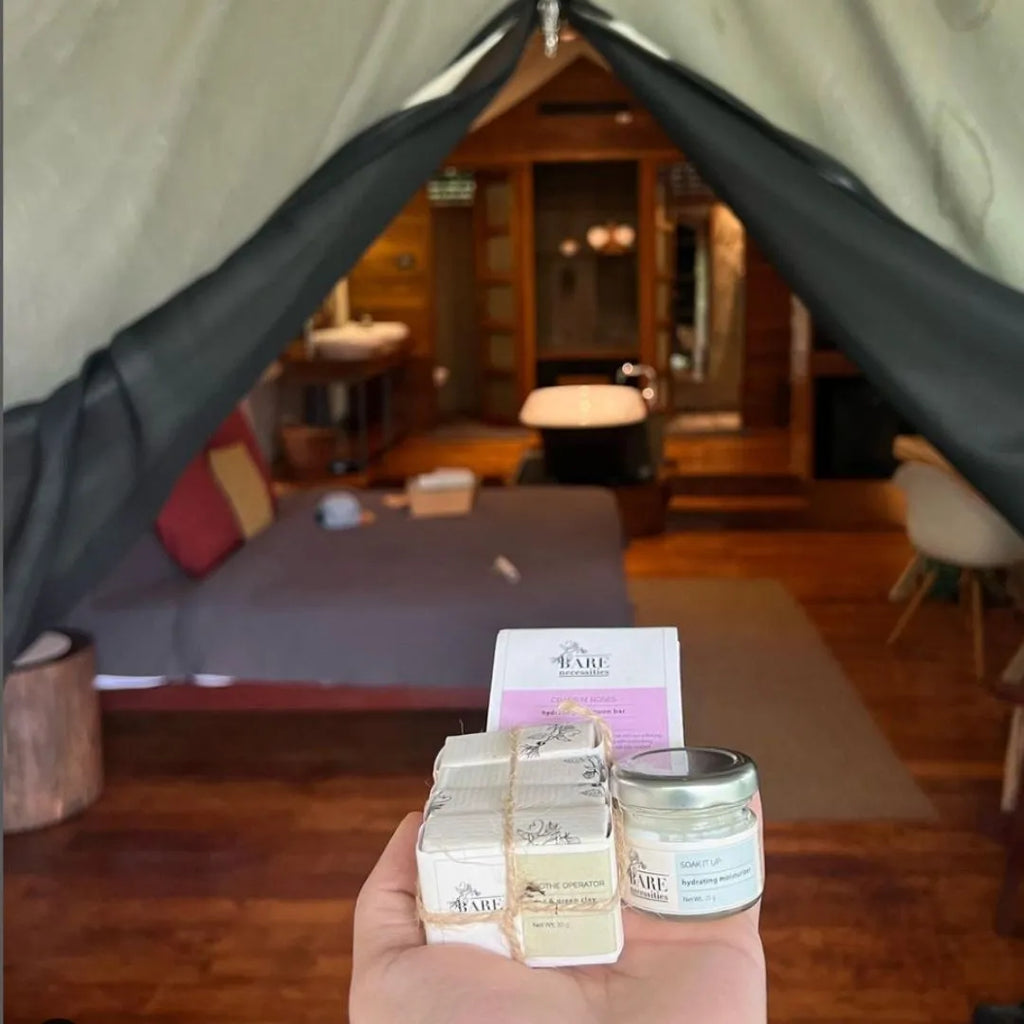Bare Necessities’ Sustainable Travel Guide

Right by the banks of the Yamuna River, adjacent to the vast Mughal gardens, sit the architectural marvel - the Taj Mahal. Built by the Mughal Emperor Shah Jahan in memory of his wife, Mumtaz Mahal, the site draws inspiration from the Mughal Empire, Central Asia and Iran. It’s one of the most prominent architectural sites in the range of the Indo-Islamic architecture.

Home to the Taj Mahal, Agra, has been grappling under the pressure of overtourism. Large volume of visitors each year has resulted in deforestation for the construction of hotels and guesthouses. Some days, the number of visitors crosses over 50,000, which can affect the condition of the marble floors.
Terms such as ‘Revenge Travel’ doing the rounds, signifying the intensified over tourism trend post Covid-19. Popular destinations such as Nainital, Mussoorie and Shimla, were severely saturated by over tourism, straining the infrastructure. The situation had worsened to the point where the Nainital administration had to send tourists back because of the lack of parking facilities. A similar fate was met for tourists in Mussoorie and Shimla.
A fallout of over tourism includes increased energy consumption and poor waste management, both of which pose significant environmental concerns. The most infamous of this being instances like Kedarnath for careless waste disposal.
Furthermore, the disrespect of local values and traditions by tourists is an unfortunate outcome. The pressure laid on regions such as coasts, islands, rural heritage sites and hill stations, underscores the need for responsible tourism practices.
How can you plan your travel sustainably?
As was seen with many of the instances shared above, several tourist spots in India and the world are debilitating under the pressure of overtourism. This holiday season, let wanderlust meet sustainability, giving you sustainable tourism, something that we’re super excited to share with you.
For starters, choose to stay in eco-friendly accommodations that consciously reduce the impact of tourism on the environment. Look for stays with elements such as rainwater harvesting, no plastic policies, solar/renewable energy and locally grown/farm to table culture. Staying in eco-friendly tourism accommodations, also supports the local economy.
Discover how Bare Necessities can enhance your eco-friendly amenities at different eco-stays. Here are some case studies showcasing our efforts in creating sustainable solutions
In the mesmerising landscapes of Leh Ladakh lies Dolkhar, where Bare Necessities provide sustainable amenities that harmonise with the pristine beauty of the region. Dolkhar uses solar-powered energy solutions to water conservation initiatives. It's about blending luxury with responsibility, offering travellers an experience that respects and preserves the natural habitat. Read more about the beauty of Dolkhar & Bare Necessities on CondeNast

- Sustainable Necessities at #Kaav nestled in the jungles of #Kabini within the Nagarhole Tiger Reserve:
Kaav embraces sustainable necessities. We believe in coexisting with nature, which is why our amenities and practices are designed with minimal impact. From eco-friendly toiletries to waste reduction strategies, every aspect of Kaav is aligned with their commitment to conservation. Knowing their stay supports the preservation of this incredible habitat. You can check out our Bare Necessities books, play cards with our bare sustainability themed deck of cards and shop your travel necessities and reusables (in case you forgot them!). Check out this Instagram post about our collaboration with Kaav Safari Lodge here
- Chambal Safari in the heart of the Chambal Valley:
Lies an oasis of tranquillity nestling in sprawling acres of reclaimed woodland. Excited to have our Bare Necessities amenities for your daily routine while you stay there, from our compostable bamboo toothbrush to our spa bars and our shampoo bars!

Zero Waste Travel:
When you’re off travelling, always ensure you carry your zero waste reusables and toiletries. From your own cutlery set to your reusable box and water bottle, be sustainably self sufficient! Zero Waste Travel.
Whether you’re an over-packer or not, there’s no denying that there is comfort in packing light. Not only does travelling with carry-on luggage reduce your carbon footprint, it also saves you time in your destination.
Carbon Offsetting:
Consider paying an extra fee for a carbon offset. What’s that? A carbon offset is a method of compensating for the carbon dioxide emissions generated through your travel through a variety of ways such as planting a tree. This may require some research to find the perfect airline to do the same, but hey, no pain, no gain! Climes is a great option to explore.

Embracing Local Culture:
Embrace the local culture starting with the food to the sites that you choose to visit. In doing so, you are sure to get a deep and nuanced understanding of the place you choose to visit. An experience that no book or YouTuber can ever give you!
Choosing sustainability is an impactful and achievable way to ensure that the places that we visit continue to remain charming and serene for the generations to come. Remember, travel means to explore, and not to exploit.
